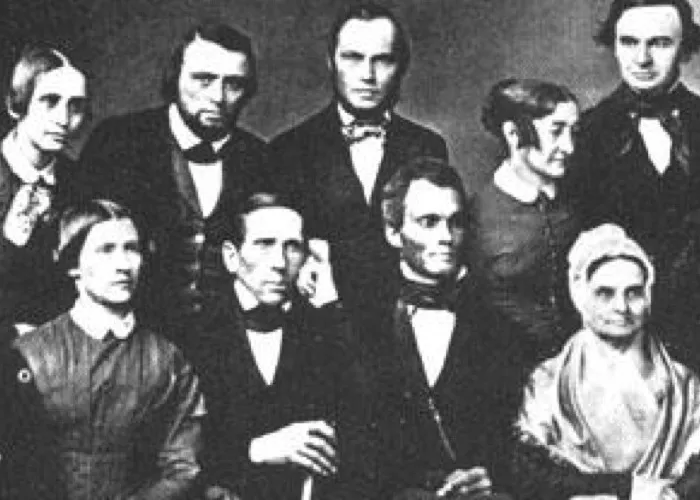December 9 has witnessed several significant events in Australian history, spanning military achievements, political milestones, and cultural developments. This article explores these events in detail, providing context and implications for each.
What Happened on December 9 in American History?
1. Occupation of Gona, New Guinea (1942)
On December 9, 1942, Australian forces occupied Gona in New Guinea during World War II. This event was pivotal as it marked a crucial point in the campaign against Japanese forces in the Pacific. The occupation followed the withdrawal of Japanese troops from the Kokoda Trail, allowing Allied forces to plan their encirclement of key Japanese positions at Buna, Sanananda, and Gona. The battle for Gona was intense, characterized by weeks of heavy fighting. The successful capture of Gona was the first of these positions to fall to the Allies and represented a significant strategic victory.
The campaign in New Guinea was part of a broader strategy to halt Japanese expansion in the Pacific. The Allies faced numerous challenges, including difficult terrain and harsh weather conditions. The victory at Gona not only boosted morale among Australian troops but also set the stage for subsequent operations that would eventually lead to the liberation of New Guinea from Japanese control.
2. Capture of Jerusalem by Desert Mounted Corps (1917)
Another notable event on December 9 occurred in 1917 when the Desert Mounted Corps captured Jerusalem during World War I. This strategic victory was significant for British Empire forces and had profound implications for the Middle East. The capture of Jerusalem was celebrated as a triumph not only militarily but also symbolically, as it held religious significance for Christians, Jews, and Muslims alike.
The operation leading to this victory involved complex maneuvers and coordination among various units. It showcased the effectiveness of mounted troops in desert warfare and highlighted Australia’s role within the British Empire during the war. The success at Jerusalem contributed to the eventual defeat of Ottoman forces in the region.
3. Federal Election Victory for Robert Menzies (1961)
On December 9, 1961, Robert Menzies’ Coalition government was returned to power following a federal election. Menzies, who served as Prime Minister from 1939 to 1941 and again from 1949 to 1966, played a crucial role in shaping modern Australia during his tenure. His government focused on economic growth and national security during a time marked by Cold War tensions.
Menzies’ return to power reflected public support for his policies and leadership style. His administration is often credited with fostering economic prosperity and establishing Australia as a significant player on the international stage during the post-war era.
4. Floating of the Australian Dollar (1983)
Another important event occurred on December 9, 1983, when Australia floated its dollar. This decision marked a significant shift in Australia’s economic policy and was part of broader economic reforms aimed at liberalizing the economy. Floating the dollar allowed it to be determined by market forces rather than being pegged to another currency or gold.
The floating of the dollar had immediate effects on trade and investment flows into Australia. It increased volatility in exchange rates but also provided greater flexibility for monetary policy. Over time, this move contributed to Australia’s economic resilience and integration into the global economy.
5. Birth of Pastor Doug Nicholls (1906)
On December 9, 1906, Pastor Doug Nicholls was born. He became an influential figure within Indigenous Australian communities and served as Governor of South Australia from 1976 to 1978. Nicholls was known for his advocacy for Aboriginal rights and his efforts to bridge cultural divides between Indigenous Australians and non-Indigenous Australians.
His work extended beyond politics; he was also a prominent figure in sports and community service. Nicholls’ legacy continues to inspire generations advocating for social justice and reconciliation in Australia.
6. The Tied Test Cricket Match (1960)
December 9 also marks the beginning of what would become known as the “Tied Test” cricket match at Brisbane Cricket Ground in 1960 between Australia and India. This match is notable not only for its dramatic conclusion but also for its place in cricket history as one of the rare instances where a Test match ended in a tie.
The Tied Test showcased exceptional performances from both teams and highlighted cricket’s growing popularity in Australia as well as its significance as a unifying force within Australian society.
7. Miners’ Protest Against Chinese Strike-Breakers (1873)
On December 9, 1873, miners in Clunes, Victoria, organized a large gathering to block Chinese strike-breakers from working in their mines. This event reflects broader social tensions regarding immigration during Australia’s gold rush era.
The protest highlighted issues related to race relations and labor rights within colonial Australia. It underscored how economic competition could exacerbate racial prejudices and led to ongoing debates about immigration policy that resonate today.
Conclusion
December 9 serves as a reminder of Australia’s diverse historical narrative encompassing military achievements, political developments, cultural milestones, and social challenges. Each event contributes uniquely to understanding Australia’s past and its ongoing journey towards reconciliation with Indigenous peoples while navigating its role on the global stage.This exploration illustrates how historical events are interconnected through themes such as conflict, governance, cultural identity, and social justice—each shaping contemporary Australian society’s values and perspectives.
In summary, December 9 is not just another day on the calendar; it encapsulates critical moments that have defined Australia’s history across various domains—military endeavors that shaped national security strategies during wartime; political milestones that influenced governance; cultural achievements that fostered national pride; and social movements that continue to challenge norms today.Understanding these events allows us to appreciate their significance within both historical contexts and current societal frameworks while recognizing their lasting impact on future generations.
Related Topics:

